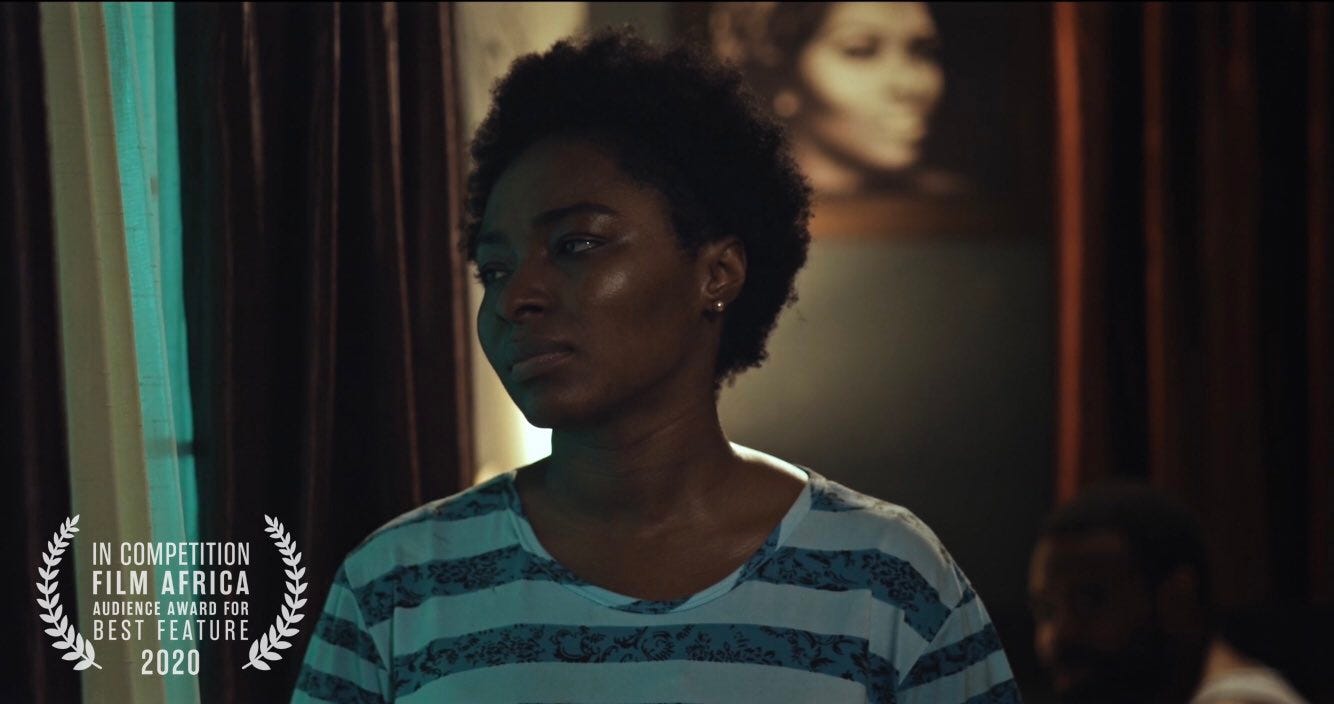My thoughts on For Maria: Ebun Pataki
For Maria is one of the finest Nigerian films you will see this year. I saw it for the first time in April of last year and had mentioned it in my year end-list but only under the patronising "honourable" category. It deserved better than that. But also the list was about favourites and I had a better experience watching the top 5 films I discussed in detail. Now that it's streaming on Netflix and I have rewatched, I can appreciate it better.
When discussing films, I try not to talk in absolutes and that it is why I use "I think", "I found" to express my thoughts and feelings. It's my way of acknowledging that the experience could be different from those of other people. I liked many things about For Maria. The actors were committed to their roles and gave very strong performances. I thought it was resolute about its themes. I liked that it touched on a topic that's not as discussed as it should. It's artistic merits are not in dispute. But.
I want to have a full conversation about the film and also share the things I did not like or thought could have been done differently.
And to do this, I have to run, a bit, through the story.
After a complicated child delivery that results in the removal of her uterus, Derin (Meg Otanwa) finds herself at odds with life and loved ones, including her doting husband Afolabi (Gabriel Afolayan). She’s often absent-minded and staring into space, is unable to eat or feed and bond with her baby, unwelcoming to strangers and even close friends. Afolabi and everyone else around her sympathise and cater to her. But when her depressive mood persists, it begins to confound them. An episode of tinnitus prompts a visit to the doctor and she’s diagnosed with post-partum depression.
There is not a lot of awareness about depression and mental health conditions in Nigeria, so Derin’s situation bewilders her concerned mother-in-law (Tina Mba) most. She is frustrated by her refusal to carry or breastfeed her baby. She is, however, not the archetypical wicked mother-in-law of Nollywood films. She does her best to help her daughter-in-law. She tries calm admonishing sometimes, flares up at other times and scold and shout, but it is never malicious. “A good mother would do things because of their kids," she advises in a scene. And when none of these work in cajoling Derin to care for her baby, she opts for a spiritual means. She prays and sprinkles holy water around the house and on Derin to exorcise whatever bad spirits she believes are responsible.
For Maria: Ebun Pataki is also about the husband Afolabi who’s caught between attending to his wife’s depressive mood and appeasing his mother who can't make sense of his wife's situation. He becomes the baby’s primary caregiver in his mother’s absence. Afolabi is the voice of reason: he encourages his mother to be more understanding of his wife, and on the other hand, lets the wife know that his mother means well. He understands his wife’s situation and patiently attends to her. If he finds his many responsibilities a burden and overwhelming, he doesn’t say or show it. His main concern is that his wife feels better and begins to bond with the baby. And so when she snaps, he knows not to argue with her. When she cries, he becomes a soothing voice. It makes For Maria not just a film exploring postpartum depression but also about the couple’s relationship and how the wife’s condition threatens it.
However, I found Damilola Orimogunje's For Maria: Ebun Pataki to be mostly a dance through its main theme of post-partum depression. Many scenes seem aimed at showing the various symptoms of the condition as though an education on it. It becomes repetitive. The story going around in circles. And while the film runs for only 75 minutes, I thought it would have worked better if it were shorter and some redundant scenes taken out. Take, for instance, the scene where the husband shares an anecdote from his childhood that essentially points to how he was also birthed through a complicated delivery that involved a surgery too. I thought it would have had a better emotional punch if his mother, the woman who had borne the pain, shared the story instead. A moment for both women to bond over shared pain and the biological challenges of birthing.
I’ve seen the film more times than twice and I know that the scene is supposed to be comforting, I’m yet to get the intended message.
Have you seen For Maria, what did you think was the scene's intention? What did you think of the film? I'd love to hear it. Please leave a comment.
And if you're yet to. Do. Watch it on Netflix. I'm glad a film like For Maria was made and I'm happy to see how it's created awareness and helped raise conversations about post-partum depression, especially on social media.




